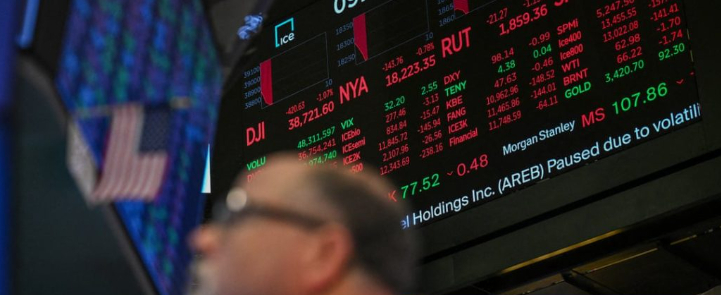
US President Donald Trump's fierce attack on Federal Reserve Chairman Jerome Powell once again caused a huge market shock. The Dow Jones Index plummeted by more than 970 points, the Nasdaq Index plummeted by more than 400 points, and the stock prices of technology giants such as Nvidia and Amazon fell across the board. Behind this "war of words" is the profound disagreement between the Trump administration and the Federal Reserve on monetary policy, and the market's dual concerns about the US economic outlook and the independence of the central bank.
The core demand of Trump's attack this time is still "interest rate cuts." On the social media platform TruthSocial, he accused Powell of being a "complete loser" and hinted that he would face the risk of dismissal if he did not cut interest rates immediately. This statement directly caused market panic-investors worried that political interference would shake the foundation of the independence of the Federal Reserve. Powell's public statement last Wednesday highlighted the opposition between the two sides: he emphasized that the Federal Reserve's decision-making will be based on economic data rather than political pressure. The current inflation risk and economic downward pressure coexist, and the time for interest rate cuts is not yet ripe.
Trump's repeated pressure has caused a triple impact on the market. First, monetary policy expectations are in chaos: investors are worried that high interest rates will aggravate economic recession, and they are also afraid that premature interest rate cuts will cause inflation to get out of control. Second, the credibility of the US dollar is facing a test - Reuters data shows that the US dollar index has fallen below the 98 mark, hitting a three-year low, and global funds are accelerating to flow to gold and euro assets. Finally, the risk appetite of the stock market has dropped sharply: the S&P 500 index is only one step away from a technical bear market, and technology stocks are the first to bear the brunt due to interest rate sensitivity. Giants such as Tesla and Google have fallen by more than 3% in a single day.
The Federal Reserve has been playing a game with "political interference" since its inception. In 1979, Volcker raised interest rates sharply to curb inflation against pressure from the White House, becoming a classic example of central bank independence; Trump's attack this time exposed new challenges: in the era of social media, the president's remarks can instantly trigger a huge market shock and even shake the confidence of international capital in the US dollar. JPMorgan Chase strategist Kolanovich warned that if the independence of the Federal Reserve is damaged, the market will lose the "last pillar of confidence" and the possibility of a soft landing of the economy will be greatly reduced.
Trump's motivation for pressure stems from anxiety about economic data. The latest U.S. leading economic indicator index for March fell 0.7% month-on-month, the largest drop in nearly two years, highlighting the continued impact of the trade war on manufacturing and consumer expectations. However, Powell faces a more complicated dilemma: if interest rates are cut, it may aggravate imported inflation caused by tariffs; if interest rates are maintained, the risk of recession will further accumulate. This "dilemma" is just as Chicago Fed President Goolsbee said: "The Fed is walking a tightrope."
In the market turmoil, safe-haven assets have become a "safe haven" for funds. Gold futures prices broke through $3,400 per ounce to a record high, and the yen appreciated sharply by 1.3% against the dollar, dragging the Nikkei index down. At the same time, cryptocurrency concept stocks rose against the trend, reflecting the shaken confidence of some investors in traditional financial assets. Deutsche Bank data shows that Chinese investors are accelerating their reduction of U.S. debt holdings and turning to European bonds and gold. If this trend continues, it will increase the liquidity pressure of the U.S. dollar.
At present, the U.S. financial market is under the double squeeze of "policy uncertainty" and "deterioration of economic fundamentals." The game between Trump and Powell is not only about the direction of short-term interest rates, but also a test of the world's confidence in the US economic system. If the conflict escalates further, the market may fall into more violent shocks, and the hope of a soft landing of the economy will become increasingly slim. As French Finance Minister Eric Lombard said: "Firing Powell will shake the foundation of the US dollar, and this risk is absolutely not something the market can bear." In the struggle between politics and economy, Wall Street's anxiety and uneasiness may have just begun.

Since 2022, the Fed has cumulatively reduced its balance sheet by $2.4 trillion through quantitative tightening (QT) policies, leading to a near depletion of liquidity in the financial system.
Since 2022, the Fed has cumulatively reduced its balance sh…
On December 11 local time, the White House once again spoke…
Fiji recently launched its first green finance classificati…
Recently, the European Commission fined Musk's X platform (…
At the end of 2025, the situation in the Caribbean suddenly…
The U.S. AI industry in 2025 is witnessing a feverish feast…